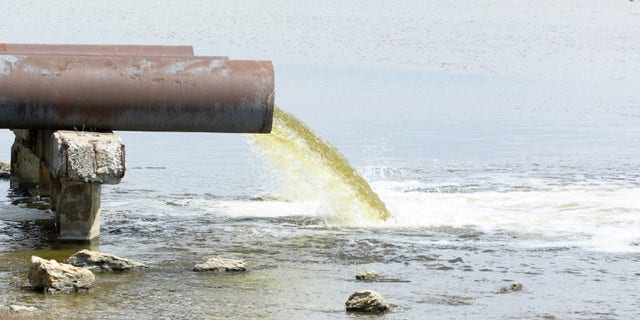France vents fury over UK dumping untreated sewage into Channel, North Sea
European lawmakers are furious with the British government, claiming they are dumping raw sewage into the Channel and the North Sea which is affecting French coastline, fishermen and the “health of citizens.”
British water companies have said they are investing how to solve the problem.
Heavy rainfall after weeks of dry weather overwhelmed parts of Britain’s sewage system last week, causing untreated wastewater to be discharged into rivers and seas.
The problem is a long-running issue in Britain, where regulators are investigating possible permit violations by six major water companies and environmental groups allege the firms have failed to make needed repairs.
RUSSIANS, UKRAINIAN ALLEGED SPIES FOR KREMLIN ARRESTED AT ALBANIA BASE AFTER GUARDS DOUSED IN CHEMICAL AGENT
Last week, British citizens were warned to stay away from dozens of beaches due to concerns about public health and damage to wildlife.
The activist group Surfers Against Sewage reported 654 alerts of sewer overflows spilling sewage into bathing waters this summer from 171 locations in England and Wales.
Since its departure from the European Union, the United Kingdom has neglected its environmental commitments, Members of the European Parliament (MEPs) argued in a letter calling for legal or political action from the European Commission.
“The English Channel and the North Sea are not dumping grounds,” said Stephanie Yon-Courtin, a member of the European Parliament’s fishing committee and a local lawmaker in Normandy.
“We can’t tolerate that the environment, the economic activity of our fishers and the health of our citizens is put into grave danger by repeated negligence of the United Kingdom in the management of its sewage water,” she said.
FINNISH PM TESTS NEGATIVE FOR DRUGS AFTER NIGHTCLUB VIDEO LEAK
Despite no longer being bound by EU laws, the UK is still a signatory to relevant United Nations conventions on protecting shared waters, the MEPs said.
The European Commission said it had not contacted London so far about the complaints. “We will take further the matter as appropriate,” Commission spokeswoman Dana Spinant said Thursday.
Britain’s Conservative government has rejected the criticism, saying it has strengthened water quality regulations since Brexit.
“Unhelpful and ill-informed comments like this shouldn’t distract from the work we are doing to further protect our rivers and sea,″ said Steve Double, the UK water minister. “We have already made it law for water companies to reduce the frequency and volume of sewage discharges, and our upcoming Storm Overflows Discharge Reduction Plan will require water companies to deliver the largest infrastructure program in water company history.”
But last week the opposition Liberal Democrats released a report alleging that wastewater discharges weren’t being properly recorded because many of the required monitoring devices either weren’t working properly or hadn’t been installed yet.
While U.K. water companies are barred from dumping untreated wastewater in normal circumstances, they are allowed to make such releases when heavy rains threaten to overwhelm sewage treatment plants. Environmental groups allege some companies exploit this exception to save money and avoid upgrading their systems.

During the Brexit breakup negotiations, the EU repeatedly expressed fears that the UK would ditch the bloc’s stringent environmental standards and yield to business pressures for a more deregulated system that could put their shared environment in danger.
The trade agreement that took effect in 2021 after Britain left the EU contains no specific provision on how to deal with storm water overflows.
Water UK, which represents water and wastewater companies, said its members were investing 3 billion pounds to tackle overflows as part of a national program to improve the environment between 2020 and 2025. It acknowledged “an urgent need for action to tackle the harm caused to the environment by spills from storm overflows and wastewater treatment works.”
“Water companies can’t do this alone, which why we’re also calling for government, regulators, water companies, agriculture and other sectors to come together as soon as possible to deliver a comprehensive national plan,” the water industry group said.
The Associated Press contributed to this report.
Read the full article Here


